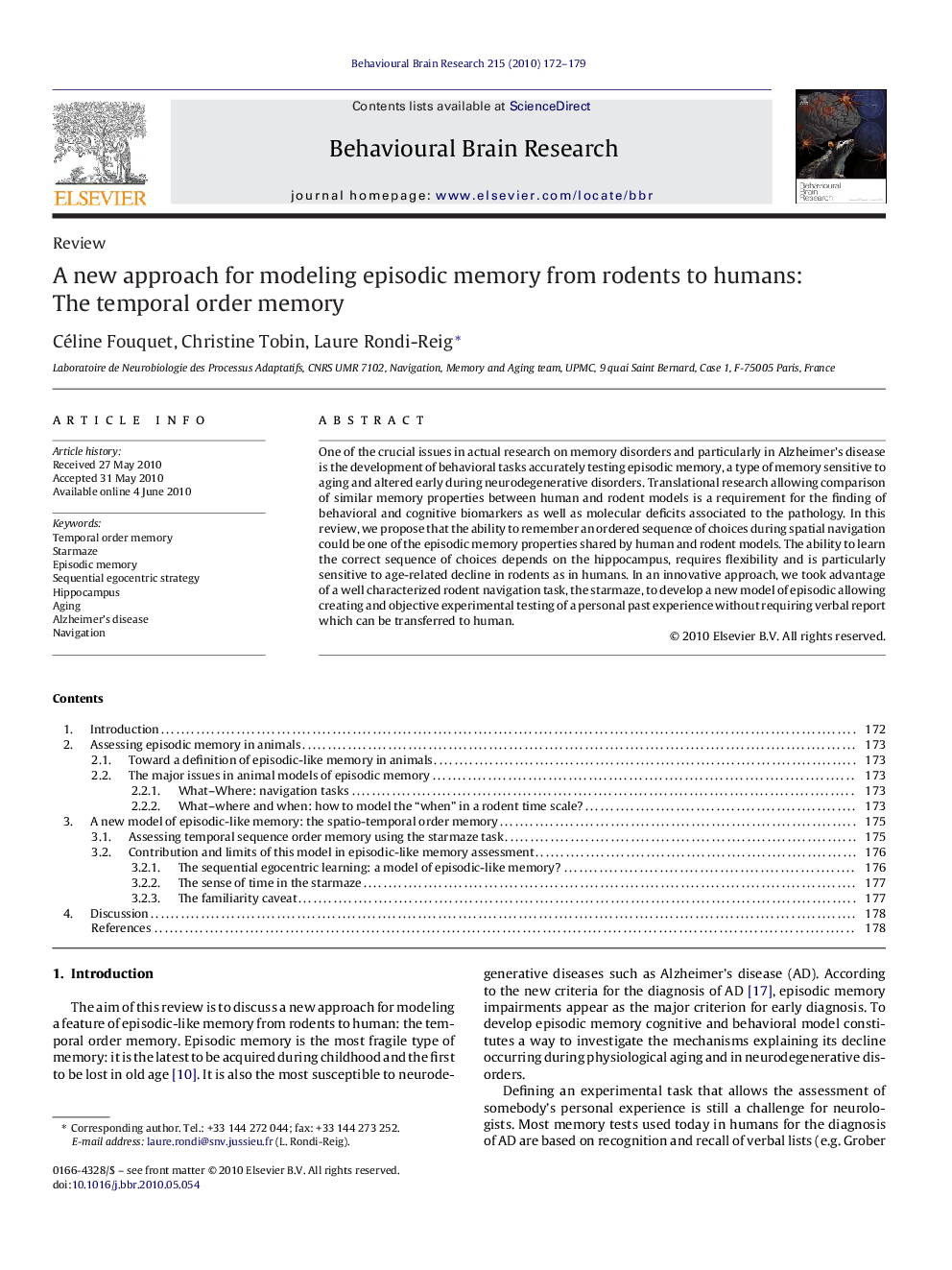| Article ID | Journal | Published Year | Pages | File Type |
|---|---|---|---|---|
| 4314068 | Behavioural Brain Research | 2010 | 8 Pages |
One of the crucial issues in actual research on memory disorders and particularly in Alzheimer's disease is the development of behavioral tasks accurately testing episodic memory, a type of memory sensitive to aging and altered early during neurodegenerative disorders. Translational research allowing comparison of similar memory properties between human and rodent models is a requirement for the finding of behavioral and cognitive biomarkers as well as molecular deficits associated to the pathology. In this review, we propose that the ability to remember an ordered sequence of choices during spatial navigation could be one of the episodic memory properties shared by human and rodent models. The ability to learn the correct sequence of choices depends on the hippocampus, requires flexibility and is particularly sensitive to age-related decline in rodents as in humans. In an innovative approach, we took advantage of a well characterized rodent navigation task, the starmaze, to develop a new model of episodic allowing creating and objective experimental testing of a personal past experience without requiring verbal report which can be transferred to human.
